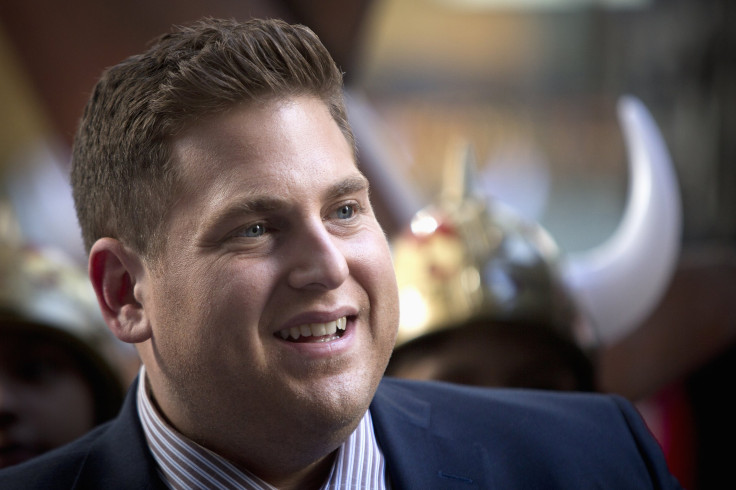True Story Trailer: 5 Facts About The Real Case That Inspired The Upcoming James Franco And Jonah Hill Movie

It’s unlikely that Jonah Hill and James Franco would be on anyone’s short list of actors to work on a serious dramatic film, especiall after Franco's recent comedy debacle with "The Interview" and North Korea. However, in the trailer for the upcoming true-crime film “True Story,” the "This is the End" stars shine respectively as a murderer who assumes the identity of a New York Times writer that he’d never met.
Although the trailer goes deep into the relationship that eventually grew between the two men, it only scratches the surface of this incredible true-crime story. To help give a little real-world context to the dark and ominous trailer, below are five facts about the case.
Who Is Michael Finkel?
Hill plays Michael Finkel, a real-life writer who was fired from the New York Times after it was discovered he’d fabricated a composite character. The story "Is Youssouf Malé a Slave?" was based on a collection of laborers he’d talked to for a story about child labor in West Africa. The discovery of his lie left him broken, ashamed and with his career hanging in the balance. According to his own account, the very same day he was let go from the Times, he got a call from a reporter in Oregon who was working on a story about the murderer Chistian Longo, played by Franco.
Who Is Christian Longo?
Longo was arrested while on the lam in Mexico after he strangled his wife and two-year-old daughter. He put the bodies in suitcases and dumped them in the bay. Unfortunately, the nightmare didn’t end there. He returned home for his 4-year-old son and 3-year-old daughter. Unable to bring himself to strangle them, he tied pillowcases with rocks in them to each of their ankles and tossed them off a bridge into cold water. They were still alive at the time.
After that, he went on the run. He always had dreams of being a traveling reporter and he tried to live those dreams when he escaped the country. He took on Finkel’s identity, simply because he was a fan, and even pretended to work on some stories before the F.B.I. finally captured him and brought him back to the U.S. for trial.
Why He Did It
According to an article he wrote about the case for Esquire in 2009, Finkel insisted, after many years of talking, thousands of pages of letters and a book about the trial, that Longo reveal the truth about what happened the night of the murders. As it turns out, Longo wasn’t the every-man that his neighbors believed he was. After starting a business that eventually failed in Michigan, Longo got into check forgery and other crimes to support his family. He didn’t tell his wife that his business was failing but she knew something was happening. When the police got wise to Longo he had to move the family out west. He got a job at a Starbucks in Oregon and set up a home with his family there. One night he reached a breaking point while at work and decided that he was a failure. Too ashamed to ask his parents for money and too weak to kill himself, he told Finkel that he needed “a clean do-over,” in the Esquire article.
GaveLife.org
The reason the two reconnected after so many years was because Longo reached out to Finkel, who was a father himself by that time, to let him know that he’d dropped his appeals after seeing the Will Smith movie “Seven Pounds.” In the film, Smith’s character decides to commit suicide so that his organs can do some good for others. Unfortunately, Finkel had to break the news to Longo that the lethal injection method of execution renders almost all of the human organs unusable. That’s when Longo decided not to drop his appeals and focus his efforts to GaveLife.org, an organization dedicated to giving death row inmates the chance to donate organs.
“He was the one person on earth I wanted to die,” Finkel wrote. “Instead I’ve helped to save his goddamn life.”
The Mystery
While Longo’s case sounds pretty open and shut, he didn’t actually give a reason for the murders until his 2009 interview with Finkel, after he told him he wanted to be executed. “True Story,” the movie, will focus on the actual murder trial, which took place in 2003, before he confessed details and his motive. The trailer hints that Franco’s character might have used Finkel as the means to some bigger end. While that doesn’t necessarily seem to be the way things played out in real life, it was certainly a question that was asked at the time.
Armed with these facts about the real-life case, check out the trailer for “True Story,” which hits theaters in January 2015.
© Copyright IBTimes 2024. All rights reserved.






















